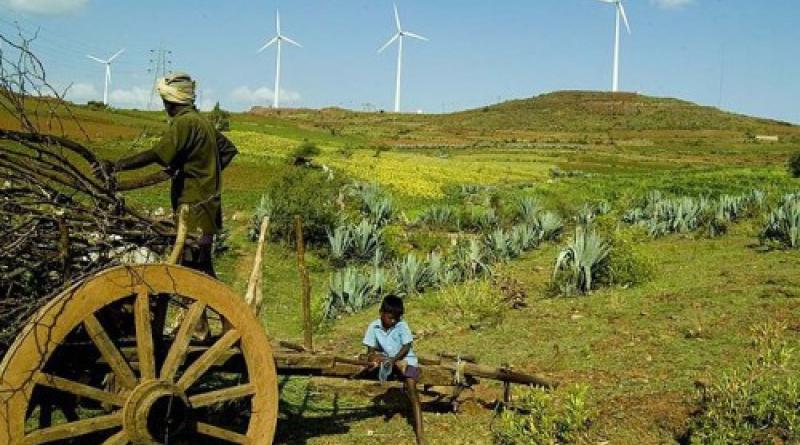Climate-Vulnerable Countries Plan New Tools To Fund Green Development.

With at least a billion people in developing countries facing serious risk as the climate warms, the 48 members of the Vulnerable Twenty Group of Ministers of Finance (V20) is introducing a new set of tools to free up more funds at less cost for green development.
The V20 made the announcement alongside international development banks during last week’s spring meetings of the World Bank and the International Monetary Fund in Washington, DC. The statement said the high cost of capital limits the projects countries can undertake, and pointed to “huge inefficiencies” in gaining access to international climate finance.
“Shortfalls in decisive action persist despite the blueprint provided by the Paris Agreement,” said V20 Chair and Marshall Islands Finance Minister Benson Wase. “We must go far beyond rhetoric. The moment calls for a robust response to protect economic growth from the risks of climate change and secure continued progress.”
“Climate change is one of the defining issues of our time, straining the global economy and threatening to reverse development gains and impede future progress,” said World Bank CEO Kristalina Georgieva. “The World Bank is committed to supporting V20 countries as they take ambitious action to adopt a low-carbon, climate-resilient growth path.”
The countries took action after a 2018 UN Environment report “calculated that the V20 countries had coughed up an additional US$62 billion in interest payments alone over the past 10 years because of their climate vulnerability,” the Thomson Reuters Foundation reports.
“The V20’s planned new instruments, aimed at fostering climate resilience and helping countries transition to 100% renewable energy, include, among other things, investment guarantees and efforts to better combine public and private money,” the TR Foundation notes. “The countries also proposed a Sustainable Insurance Facility to promote insurance among smaller businesses as a way to help them address climate risks.”
Thomson-Reuters cites a recent report by the London-based Overseas Development Institute that critiqued attempts to use funds from governments and development banks as a catalyst for private investment in developing countries.
“The report found policy-makers have overblown expectations about how much private money can be mobilized, especially for low-income countries which are receiving very little,” writes reporter Megan Rowling. “The ODI researchers calculated that every $1 of public money invested mobilized just $0.37 of private cash in low-income countries, and only $0.75 in all developing states—ratios much lower than those often cited by development banks.”
And that activity could draw aid money away from the places where it is needed most to combat poverty. “There is a risk that all this money is going to be invested in this way, but we don’t actually know what the impact of that is in terms of poverty reduction,” said lead author and ODI senior research fellow Samantha Attridge.
14 April 2019




